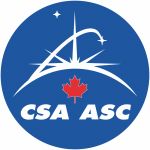

|
Societal Applications in Fisheries & Aquaculture using Remotely Sensed Imagery (SAFARI) |
|
The IOCCG is one of the co-sponsors for the SAFARI Project, which was developed under the umbrella of GEO (Group on Earth Observations), to address GEO Task Number AG-06-02. The Canadian Space Agency is the primary sponsor of the project, and other co-sponsors include GEO and the Bedford Institute of Oceanography. The SAFARI project aims to accelerate the pace of assimilation of Earth observation data into fisheries research and ecosystem-based fisheries management on a world scale (see article on Applications of remote sensing in fisheries and aquaculture published in by GEO in "The Full Picture").
The IOCCG has agreed to publish a monograph on Applications of Remote Sensing in Fisheries and Aquaculture, an outcome of the international workshop held at the Bedford Institute of Oceanography 26-28 March, 2008. The SAFARI Project will also help to build capacity on a global scale at the science level and the operational level, and will facilitate the application of rapidly evolving satellite technology to fisheries management questions. The main components of the SAFARI Project are:
Earth observation has a great deal of potential to benefit society under activities covered generally under the heading Fisheries and Aquaculture. Various EO initiatives related to fisheries have already been started outside the umbrella of GEO, and it will be extremely useful, under GEO Task Number AG-06-02 to coordinate these at the international scale, and add to their value through synergy. Further, the international consensus to follow ecosystem-based management raises the imperative to design and implement a suite of ecological indicators with a view to detecting change in the ocean ecosystem should it occur in response to perturbations, for example by climate change or by overfishing. Such indicators would also be responsive to seasonal and interannual changes in the ecosystem, and thus be of use to fisheries research and management. Because of its high resolution in space and time, and low incremental cost, EO by remote sensing will be of the utmost importance in this regard. For more information on the SAFARI Project, please consult the SAFARI website.
|